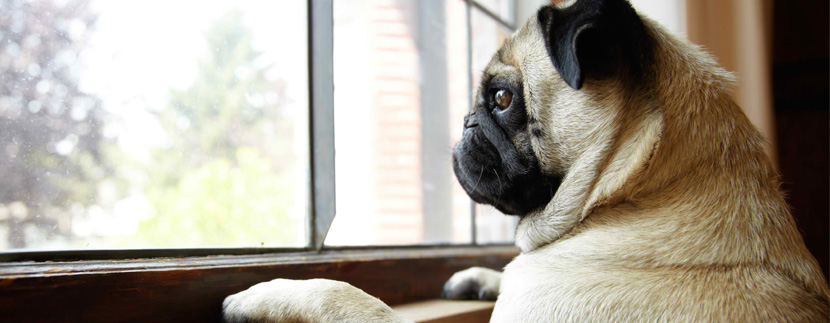
Renters sometimes have a similar reaction when something goes wrong in their rental unit — whether or not the issue was their fault. The idea of telling your landlord about accidentally clogging the kitchen sink might sound dreadful, but certain things are important to be transparent about.
You adopted a pet
Maybe you didn’t have a pet when you signed your lease, but after you moved in, you just couldn’t resist a pair of puppy-dog eyes. Sneaking in pets either because they aren’t allowed in the rental, or to avoid paying extra fees at your pet friendly apartment could get you evicted (really!) or slapped with a hefty fine. Pets can damage property, and for that reason, landlords who allow pets usually require a pet deposit, fee, or charge a slightly higher rent. Still not sold? If your landlord doesn’t know about your furry companion, you could be putting your pet in danger.
You moved someone in
Landlords screen tenants before renting to them by conducting a credit check and, sometimes, a background check. If you bring in a roommate after signing your lease, you haven’t given the landlord the chance to screen this person, and that could get you evicted. Even you’re trying to help out a close friend, you’re reliable for his or her actions — and they could very well accidentally break something. More occupants also mean more wear and tear on the property and depending on the property and its jurisdiction, there may be restrictions on the number of occupants even allowed to live in the unit.
Something is clogged
Or there’s a leaky faucet, or there’s water backing out of a drain. You could ignore those problems, maybe by using another bathroom, or you could try to fix the problem yourself — but both approaches would be wrong. Many tenants don’t report plumbing problems, afraid they’ll be charged for the repair. (And yes, typically, if a plumbing problem is your fault, you’ll need to pay for the fix.) But the landlord is responsible for fixing all other plumbing problems.
However, if you don’t report a plumbing issue right away, and a small problem turns into a big, expensive disaster, whether you caused the problem or not, you might be on the hook to pay. And you can bet the plumbing bill will now be much bigger than it would have been if you had reported the problem immediately. Who pays for rental repairs typically depends on your lease and on state laws.
There’s a new water stain on the ceiling
A water stain on the ceiling might not seem like a big deal, and it may not be … yet. But unusual water stains oftentimes mean a leaky roof, and like a plumbing issue, the problem will continue to worsen every time it rains. Even a small leak is left unattended it can become a major problem. Water can seep into the ceiling, damage insulation, wiring, and framework. And that’s why you need to report a water stain to your landlord right away.
You lost your key
Truth is, Your landlord will probably charge you to replace your lost key. But the fee for doing this should be minimal. If you’re worried that someone might find your key and use it to enter your property, you’ll need to pay to have the locks changed, which will cost more. But unless your address was attached to the key, the odds of someone knowing which door that found key unlocks are slim.
